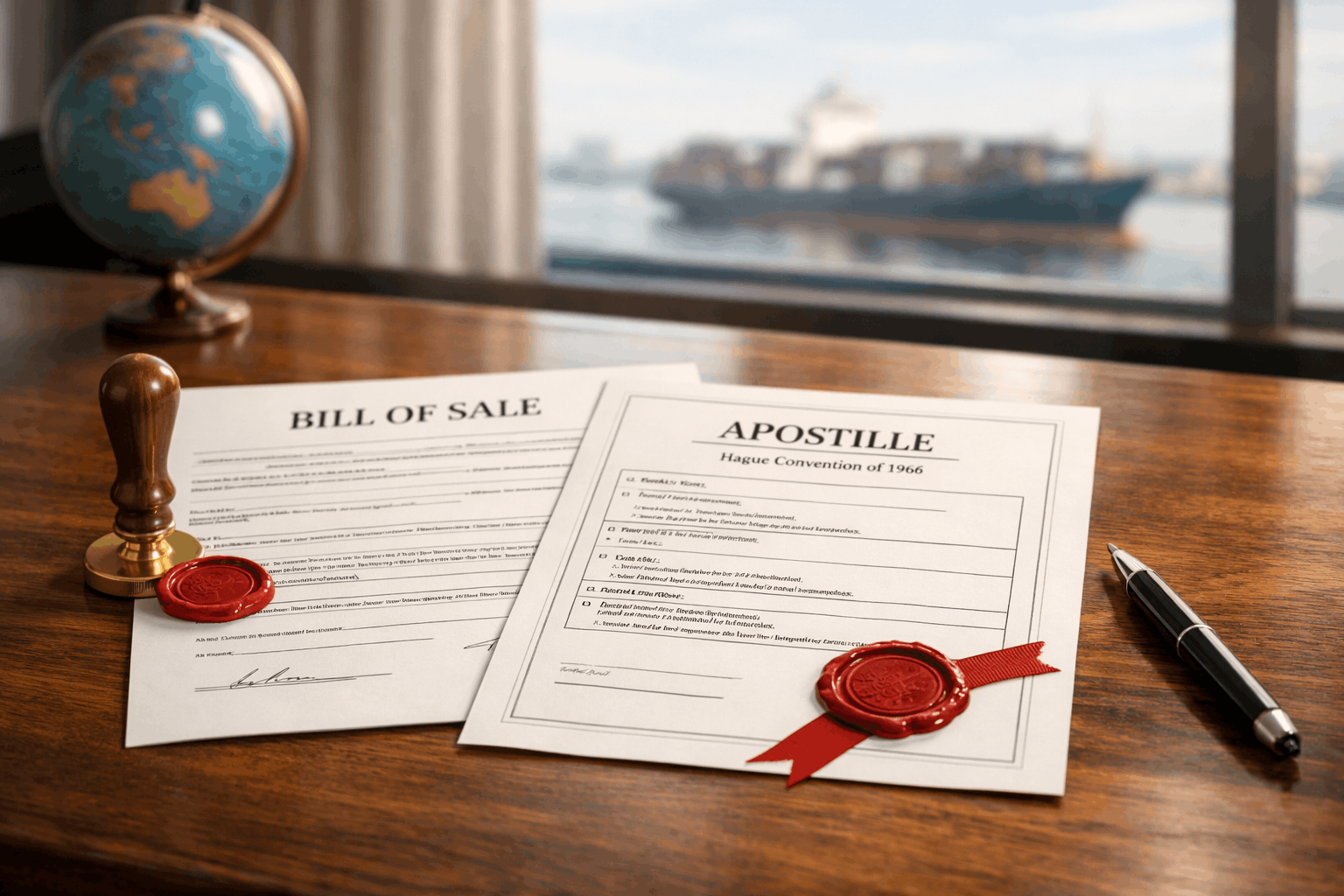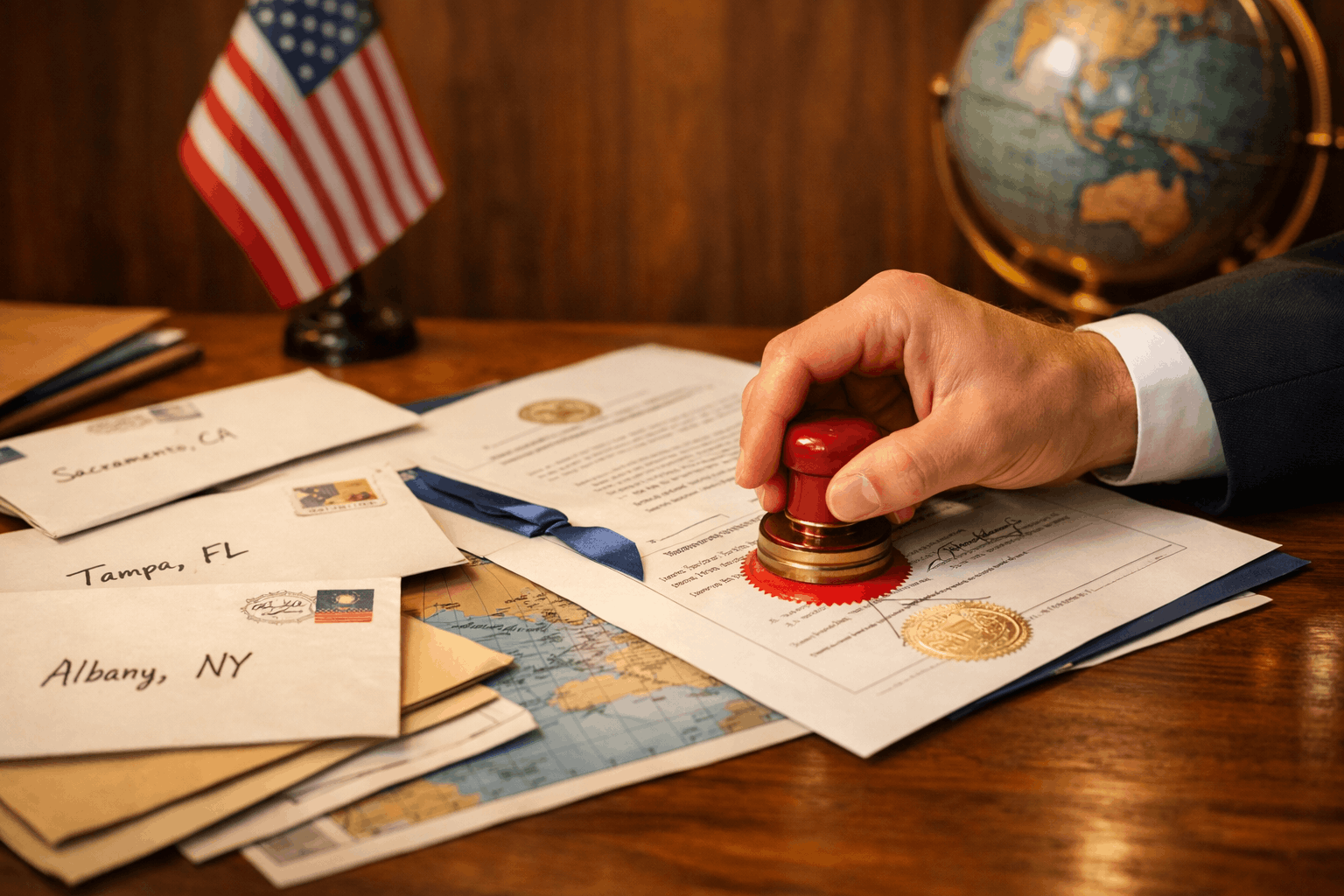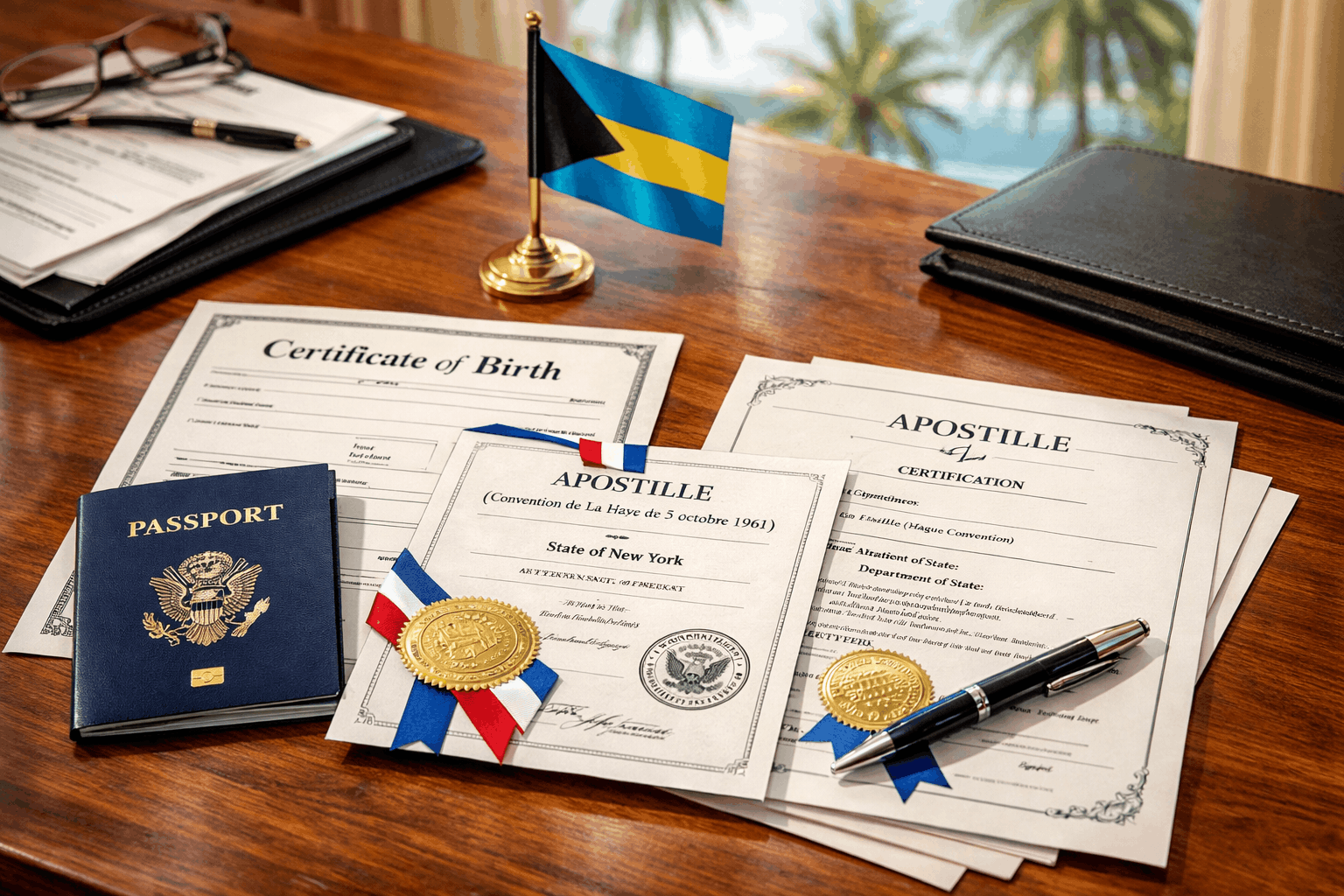
Apostille for a Last Will and Testament
An apostille ensures that a last will and testament is recognized across borders, such as when managing an inheritance in a Hague Convention country. If you’re looking for information on how to apostille a will or need guidance on the process in the U.S., this post will provide you with essential details. We’ll explain when an apostille is required, outline the steps to certification, and offer tips to prevent potential issues. Let’s make your international legal matters seamless!
When Would You Need an Apostille for a Will?
A last will and testament apostille becomes crucial when dealing with overseas estate matters. Think of scenarios like having an inheritance dispute abroad or working with foreign beneficiaries. The apostille ensures that international proceedings go smoothly, with all documents accepted in different legal systems. Here’s when it’s necessary:
Inheritance and Probate Cases Abroad
When a loved one who owned assets abroad passes away, local courts likely require apostilles for inheritance documents to verify authenticity before probate. Common paperwork to be apostilled includes the will, death certificate, or letter of testamentary. Without the apostille, foreign authorities may refuse a will or related papers, resulting in delayed asset settlement and frozen bank accounts or holdings.
Executors or Beneficiaries Living Overseas
If key individuals like executors or beneficiaries reside abroad, an apostille for a will is often required for validation. International banks and foreign governments likely demand apostille certification before they can approve inheritances. Missing an apostille might cause difficulties for executors to manage assets or for beneficiaries to access entitlements from another country.
Certified Copies vs. Original Documents
It’s important to distinguish between certified copies and the original documents when it comes to global authentication. Some jurisdictions accept certified copies of a will, while others might demand the originals. Failing to meet the exact requirement can put a halt to probate, leading to a loss of time and money. Thus, always check with the destination country to submit the right version.
Steps to Get an Apostille for a Last Will and Testament
To secure an apostille for a will and testament, there are certain key steps you should follow for international acceptance. From obtaining a certified copy to arranging an accurate translation that fulfills global standards, this part will map out a straightforward route to authenticating a will for use abroad.
Step 1: Obtain a Certified Copy
Everything begins with getting a certified copy of the last will and testament from the relevant authority. If the will has been probated, you may request it at the probate court in the county where the will was recorded. The required information typically includes the deceased’s name, date of death, as well as a copy of the death certificate. Contact the court clerk in advance to inquire about the detailed procedures, as some courts might have special rules.
Step 2: Ensure Proper Certification or Notarization
If you’re using a copy instead of the original will, most states require it to be notarized and certified before undergoing apostille authentication. Verify which kind of certification is required and the agency that offers the service. Generally, you should have the copy properly notarized by a state-commissioned notary public and certified by a court clerk in the county where the deceased last resided.
Step 3: Apply for the Apostille
After you complete any required certification, it’s time to submit your notarized copy of the will for an apostille. Address your request to the Secretary of State’s office where the death certificate was filed and the probate occurred.
Typically, you’ll need to include the following documents:
- Original or notarized/certified copy
- Death certificate
- Grant of probate, if applicable
You may choose from different methods to submit a request: walk-in, mail, or online submissions. Remember to include any required request forms, cover letters, and payments. For urgent matters, use expert services to avoid setbacks and delays.
Step 4: Translation and Delivery
If the receiving country requires a certified translation, ensure the translation is conducted before apostille processing. This allows your translated document to receive the golden stamp for global acceptance. Finally, opt for a secure and trackable international courier service to deliver materials to the foreign authority.
Other Estate Documents That May Require Apostilles
Besides the last will and testament, you should also consider the apostille process for other estate documents to use them internationally. Let’s highlight the key documents you might need to settle overseas estates and probate processes.
Death Certificates
An apostilled death certificate confirms the legitimacy of the document for probate or estate claims overseas. The process is similar to apostilling a will, as death certificates are state-issued documents. Simply obtain a certified copy from the vital records office, and then submit an apostille request to the Secretary of State.
Probate Decrees or Letters of Testamentary
These are court-issued documents that authorize an executor to administer the deceased’s estate abroad. Foreign authorities often require apostilles for them before allowing asset transfers or bank account access. Request certified copies of these documents from the issuing probate court, and then send them to the state authentication office for apostille approval.
Powers of Attorney for Heirs or Executors
If an heir or executor needs legal authority to act abroad on someone’s behalf, an apostilled power of attorney might be necessary. The apostille removes the gaps between different legal systems — whether selling a property, withdrawing from an account, or presenting estates before foreign courts. You should have a power of attorney properly notarized to obtain a state-level apostille.
Common Issues and How to Avoid Them
Even the most detailed plan and careful preparation might hit snags — the same happens to apostilling a will. While it’s natural to encounter issues, you can always prevent oversights before things go south with our practical tips. Below are the most frequent hurdles and how to overcome them smoothly.
Rejection Due to Improper Certification
The most common rejection reason? Submitting an attached certification that doesn’t meet apostille standards. For instance, you might send in an uncertified copy of the will, which fails to satisfy state rules. Most states demand certification to ensure that a copy accurately reflects the original will. It’s important to adhere to the specific requirements and have it certified correctly for the apostille.
Notary or Formatting Errors
A minor error in notarial wording or an inconsistency in document formatting may result in apostille rejection. Most authorities outline clear, standardized criteria for document notarization, and it doesn’t hurt to learn them before getting a notary. After receiving the notarized will, double-check the headings, dates, and notarial language for compliance with state and international requirements.
Delays with Probate Court
Obtaining certified copies of probate decrees or letters of testamentary can be a nightmare, taking weeks to months. Many factors also add to the waiting time, such as missing paperwork or unclear estate details. To prevent issues with asset distribution or ownership transfer, it’s best to review all the documents carefully in terms of completeness, accuracy, and legal soundness.
Timeframe and Costs
Apostille processing times differ between state offices, usually from 2–4 weeks on average. Expedited options provided by professional services may trim the timeline down to 1–3 days for additional costs. Certain states allow walk-in submissions with limited availability, and you can receive your apostille on the same day.
Typical processing fees range from $10–25 per document. You should account for certified translation and courier costs, which vary depending on urgency and destination country. Planning the budget helps prevent surprise costs along the way and ensures the apostilled will arrive exactly when it’s expected.
Why Choose Us for Apostilling Your Last Will and Testament?
Our expert team navigates the complex probate requirements with precision and prudence. We offer quick turnaround time, transparent pricing, and personalized support in obtaining an apostilled last will and testament effortlessly.
Services covered:
- Document review and preparation
- Certified translation to nearly 200 languages
- Expedited or same-day apostille processing
- Apostille delivery and continuous assistance
We’re committed to making the apostille process worry-free, laying the groundwork for success in probate proceedings and estate settlement abroad.
Need Help Apostilling a Will? We’re Here
This comprehensive post has provided you with the basics of requesting an apostille for a last will and testament. Understanding the step-by-step guidance is key to achieving authentication, from getting certified copies to international delivery. The good news is you don’t have to tackle the challenge alone: professional assistance is always ready to give you a helping hand. Call us today for more details!
FAQ
Can an original will be apostilled?
Yes, you can apostille the original will. However, most countries accept certified copies, so you don’t need to submit irreplaceable original documents.
How long does it take to get a will apostilled?
Usually 2–4 weeks, depending on the state. Using expedited services might reduce the waiting time to 1–3 days for extra fees.
What if the country where I need the will isn’t part of the Hague Apostille Convention?
You’ll need to obtain state and/or federal authentication first, and then request embassy legalization as per the destination country’s requirements.
Do death certificates and other estate documents need separate apostilles?
Yes, each document requires an individual apostille. That said, submitting a bundle apostille request helps reduce turnaround time and international courier fees.
Can I handle the process myself, or do I need a service?
You can absolutely manage the process on your own, but note that pitfalls often occur to first-timers. That’s when specialized services step in to relieve the paperwork burden, saving you from costly errors.





